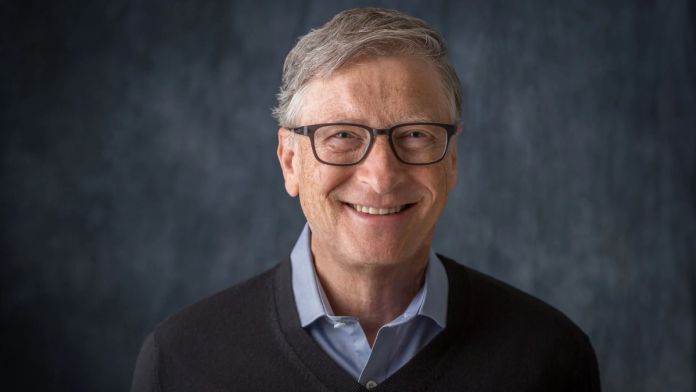In a recent discussion, billionaire philanthropist Bill Gates shared a thought-provoking prediction about the future of work. He believes that advances in artificial intelligence (AI) will likely change the way humans live and work in the next decade. According to Gates, AI could take over most jobs currently performed by people, leading to a world where humans may only need to work two days a week.
Gates explained this idea during an interview earlier this year. He said that AI is advancing faster than many expected and will soon be capable of handling most kinds of work — from manufacturing to services. Gates described this transformation as “profound,” adding that while it could solve major global issues such as the shortage of doctors, teachers, and mental health professionals, it will also bring deep social and economic changes.
He emphasised that the rise of AI will make society rethink what kinds of jobs humans should continue doing. “There will be things we’ll keep for ourselves,” he said, referring to activities such as sports or creative arts. But for industries like farming, transportation, and manufacturing, AI might eventually handle almost everything. Gates called this era the beginning of “free intelligence,” where knowledge and problem-solving will be widely accessible to everyone through technology.
The Rise of AI and the Two-Day Work Week
Gates’ idea of a two-day work week might sound unrealistic to many today, but conversations about shorter working hours have already begun in several parts of the world. Many companies have experimented with reducing the standard five-day work week to improve employee productivity and well-being.
For instance, Exos, a global performance coaching company with more than 3,000 employees, tested a four-day work week in 2023. The results were surprising. Productivity increased by 24%, while employee burnout dropped by half. Workers reported feeling happier, more creative, and better rested.
A similar experiment took place in Japan, where the government of Tokyo introduced a four-day work week for public employees. The move aimed to combat “karoshi,” a term meaning “death by overwork.” Japanese authorities hoped that shorter working hours would help improve work-life balance and raise the country’s birth rate, which has been falling for decades.
These examples suggest that shorter work weeks could be possible — even beneficial — in the long term. However, Gates’ vision of a two-day work week depends heavily on how quickly AI takes over tasks currently performed by humans. While machines could bring efficiency and innovation, they also raise tough questions about employment, income, and equality.
Growing Inequality in the Age of AI
As AI becomes more advanced, experts are warning about its potential side effects. One major concern is the widening gap between the rich and the poor. While AI could make life easier and boost productivity, many fear it might worsen inequality if the rewards mainly go to large corporations and wealthy individuals.
Technology leaders have noted that in a capitalist economy, profits from AI-driven efficiency are rarely distributed equally. As a result, companies and their owners may grow richer, while many workers risk losing their jobs or facing pay cuts. This growing divide could lead to serious social unrest and economic instability.
TechInsights blocked in China after revealing foreign sources in Huawei AI chips
Ethical Dilemmas and the Future of Human Work
There are also deep ethical questions about how much control humans should hand over to machines. As AI becomes capable of creating, building, and even teaching, people are beginning to wonder what roles will remain for humans. Gates described this uncertainty as both exciting and frightening, noting that AI’s progress is happening “very quickly” and seems to have “no upper bound.”
AI’s influence is already visible in fields like education, healthcare, transportation, and communication. Today, digital assistants can draft essays, translate languages, analyse data, and even help diagnose illnesses. These tools improve efficiency but also reduce the demand for human labour.
Experts are urging governments and businesses to plan for this shift by introducing safety nets and retraining programs. Yet, even with such measures, society will face tough decisions about the place of humans in an AI-driven world. The concept of a two-day work week may soon be more than a luxury — it could be a necessity in a future where machines perform most jobs better and faster than people. The real challenge lies in ensuring that this transformation benefits everyone, not just a privileged few.


